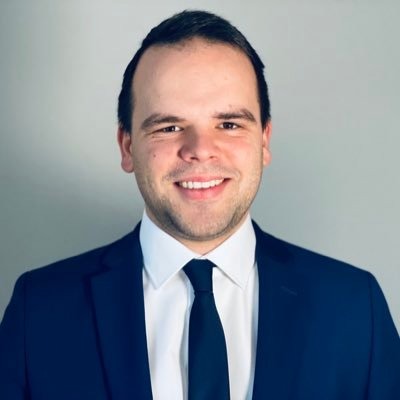“We see that the era in which we live continues to be marked by forgetting and being deaf to God. I think, therefore, that we should learn the simplest and most fundamental lesson of the Council: namely, that Christianity in its essence consists of faith in God which is Trinitarian Love. And when, instead, man lacks faith in God, the essential collapses because man loses his profound dignity and what makes his humanity great enough to withstand any form of reductionism.”
These are words of Pope Benedict XVI from 2012. Pope Benedict XVI, who died in 2022, always emphasized throughout his life that the Christian faith is the best foundation for human dignity. In his message for World Peace Day 2011, for example, he said: "The sincere search for God has led to greater respect for human dignity.”
In order to preserve this concern of the late Pope, the “Ratzinger-Schülerkreis” and the “New Schülerkreis” organized a theological conference on this topic in Rome on September 27, 2025.
“At our conference, we focus on the challenges posed by the view of humanity in today's society, with keywords such as transhumanism, artificial intelligence, and the so-called “gender theory”. These are very big challenges. We confront them with the Christian view of humanity, as developed primarily by Cardinal Joseph Ratzinger and Pope Benedict, based on the biblical writings and the tradition of the Church.”
Explained Cardinal Koch, Prefect of the Dicastery for Promoting Christian Unity, companion and close friend of the late German pope, points out that Ratzinger recognized the signs of the times early on.
His Eminence also noted, “He foresaw many problems we have today. For example, back in the 1970s he wrote: ‘The battle for humanity is being fought today through the battle for the family.’ That was very prophetic. That is exactly what happened.”
Prof. Hannah-Barbara Gerl-Falkovitz, Philosopher of Religion, was invited to speak about statements made by Cardinal Ratzinger and further as Pope, “who already in the 1990s reflected about the human body and also the difficult topic of ‘gender,’ for example the question: Is my gender identical to my biological sex, or can I choose my gender? Ratzinger had actually already been thinking about this in the 1990s, also on behalf of John Paul II.”
She added, “And he pointed out, in a very nuanced way, that human nature in this sense also includes freedom, whereas the concept of autonomy that we have today is a rather limited view of freedom. Autonomy means: I determine myself. But that is, of course, a very narrow approach. Joseph Ratzinger, and later Pope Benedict, beautifully highlight the tension between what is given to me as a gift and what I then do with it, become, develop.”
In addition to Cardinal Kurt Koch and religious philosopher Hanna-Barbara Gerl-Falkovitz, professors Stefanos Athanasiou, Vincent Twomey, Stephan Kampowski, Ralph Weimann, and Christoph Ohly also spoke at the event.
For Professor Ohly, who heads the "New Schülerkreis,” it is not surprising that Pope Benedict XVI's theology continues to inspire people today.
“Ratzinger’s theology,” he said, “is a theology that is entirely in line with the faith of the Church, but which is devoted with all the sharpness and power of reason. Faith and reason form the basis for all those areas of philosophy and theology to which he devoted himself in his thoughts. And this at a very high, very deep level. So, it is really a challenge to confront these ideas and, at the same time, to be repeatedly surprised by how simply he formulates them. It is true what he said once during his trip to Germany: Faith is simple. We must not complicate it, even if it encompasses many dimensions that we can almost never grasp or fathom.”
Cardinal Koch added, “Ratzinger gives profound answers, but from a place of faith, and in a simple way. He can describe and present highly complex topics very simply. I believe that speaks directly from heart to heart, from mind to mind.”
SIGN UP FOR OUR NEWSLETTER HERE
Adapted by Jacob Stein
Produced by Alexey Gotovsky; Camera by Fabio Gonnella; Video Edited by Giada D’Ottavi

Rudolf Gehrig has been working for EWTN since 2013, among other things as a reporter, TV presenter, and producer. From 2019 to 2022 he was chief correspondent for German-speaking Europe at CNA Deutsch before moving to the Italian capital as a Rome correspondent and has since reported for EWTN Vatican and CNA Deutsch directly from the heart of the universal Church.







